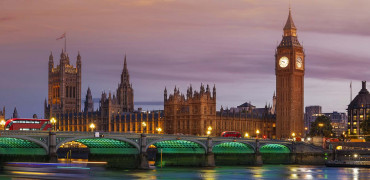The UK International Investment Summit was the first big test of the new government’s business credentials. So, Jim McClelland asks: Did the world of money like what it saw?
Taking place just 24 hours after the new Government celebrated its first 100 days in power, the International Investment Summit on 14 October was always going to be seen as both a showcase for its pulling power and a test of market confidence in the wider UK economy.
The audience was also on the lookout for any hints or slips that might provide a clue as to what to expect from the inaugural Budget due at the end of the month.
Hot topics might include any talk of tax — whether in the form of incentives for R&D, or rates for corporations — and support for start-ups or scale-ups, plus international trade.
Given the Labour Party’s very on-off love-affair with the investment community over the years, this event in the heart of the City of London represented an opportunity to really sound the opening bell for business and finance under the new regime. It was a big deal.
In regulatory terms, a huge majority could and should translate into a licence to print money
Sector breakdown aligns with policy
So, did the UK’s cash-strapped Chancellor ultimately get the money in the till?
Well, yes. According to official figures, nearly 38,000 jobs will be created across the UK thanks to some £63 billion in total investment. As has been pointed out, however, almost a quarter of that sum had actually been secured before the current administration took office.
Nevertheless, the record-breaking sum is still more than double the £29.5 billion last year.
The new government has taken credit for key investments being directly attributable to immediate action on its part to reform planning, focus on artificial intelligence (AI) and data centres, plus commit strongly to net zero by almost doubling funding for renewables.
There is some evidence of core policy alignment to be found in the breakdown of the overall Summit cash-haul by sector and in the names of principal investors, as follows:
- Renewable energy generation, supply and storage, also carbon capture, utilisation and storage (CCUS), plus roll-out of charging infrastructure: Iberdrola; Eni; BP; Equinor; Ørsted; Greenvolt; Octopus Energy; SeAH Wind; Macquarie; BW Group;
- Tech and the digital economy, including data centres and AI: Blackstone; Amazon Web Services; CyrusOne; CloudHQ; ServiceNow; CoreWeave; Imperial College London;
- Transport, mobility and logistics: Manchester Airports Group; Network Rail and London & Continental Railways; DP World; and Associated British Ports (ABP);
- Health and pharmaceuticals: Haleon; Eli Lilly and Company;
- Manufacturing: Holtec (civil, defence and nuclear); Eren Holdings (recycled paper).
Private sector helps pick up the tab
It is worth noting, of course, that this kind of big-ticket event is only possible with the support of sponsors from the private sector.
In the case of the Summit, most of the backing predictably came from the world of finance — namely, major banks, Barclays, HSBC and Lloyds, plus global savings and investment manager M&G plc.
Perhaps the more tellingly policy-specific sponsor partners were utility company Octopus Energy — now the UK’s largest electricity supplier — plus, international engineering and construction group TSL, which specialises in data centres, amongst other project work.
Will regulation be a barrier, or enabler?
Going forward, however, whilst the Pound signs might have grabbed most of the media attention, there is more to the UK being investible over time than mere maths.
A critical component of ongoing economic stability, as well as a driver for innovation, is something often wrongly seen as a barrier to enterprise and growth: regulation.
Especially for investors focused on environmental, social and governance criteria (ESG), upcoming changes to the regulatory landscape signpost the direction of travel in the UK.
When it comes to money flows, in and out, laws and legislation matter: from the impending Sustainability Disclosure Requirements (SDR) of the Financial Conduct Authority (FCA), to the Government’s own Employment Rights Bill and Great British Energy Bill.
From the shop window to the small print
For the UK, the fact that the Labour Party won 411 of the 650 seats in Parliament at the last Election means the new Government’s simple majority currently stands at 157.
Such a numerical advantage in the House of Commons is a power-play platform on which to make even unpopular policy happen. It is a three-line whip for whatever you want.
In regulatory terms, this could and should translate into a licence to print money.
The high-profile Summit might have done its shop-window sales-job in attracting investors, but it will be the unsung small print of policy and regulation that will ultimately keep them.
The investment train is rolling … All aboard! Next stop: This week’s Budget Day – 30 October.
Jim McClelland is a sustainable futurist, editor, journalist and speaker




